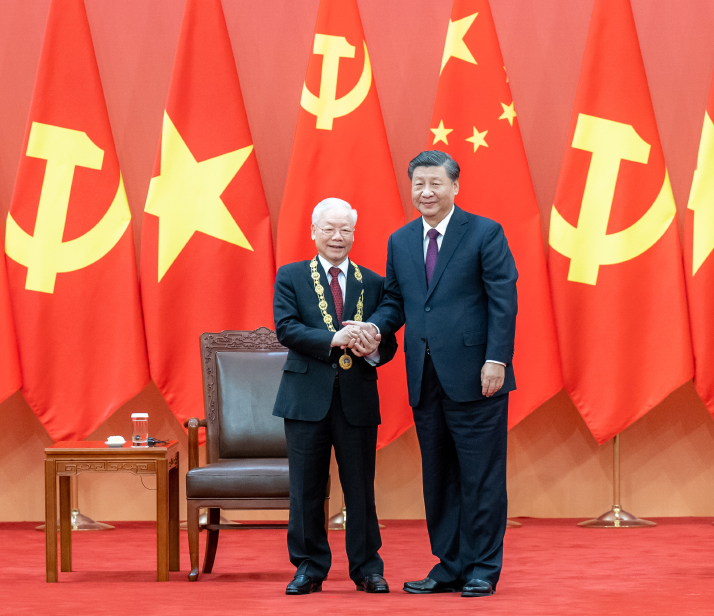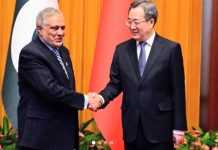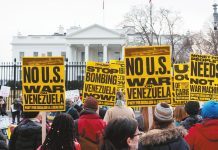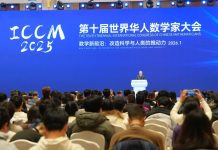BEIJING: On November 4, German Chancellor Olaf Scholz paid an official visit to China. He is the latest foreign leader to travel to China, after General Secretary of the Communist Party of Viet Nam Central Committee Nguyen Phu Trong, Pakistani Prime Minister Shahbaz Sharif and President of Tanzania Samia Suluhu Hassan, who have all visited the country since late October.
Singapore-based Chinese-language newspaper Lianhe Zaobao reported on November 2 that just 10 days after the conclusion of the 20th Communist Party of China (CPC) National Congress, the country had entered its most intense week of diplomatic activity since the Beijing 2022 Winter Olympics earlier this year.
China has improved its overall diplomatic agenda and actively created a global network of partnerships to foster a new type of international relations, according to the report to the 20th CPC National Congress. By hosting foreign leaders, China is projecting an open, inclusive, forward-looking and responsible image, Rong Ying, Vice President of the China Institute of International Studies, said in an interview with the Global Times.
Rong pointed out that the consistency and stability of China’s policies bring more certainty to the world.
Consolidating communal trust
Acting on the principles of amity, sincerity, mutual benefit, and inclusiveness and the policy of forging friendships and partnerships with its neighbors, China strives to enhance friendly ties, mutual trust, and converging interests with its neighboring countries, the report to the 20th CPC National Congress reads.
The Vietnamese leader’s visit marked his first foreign trip since his re-election in January 2021 and the first by a foreign leader to China after the conclusion of the 20th CPC National Congress.
As socialist countries, China and Viet Nam have supported one another over the years, built a “comradely and brotherly” friendship and adhered to a people-centered development philosophy, Jia Duqiang, an associate professor at the National Institute of International Strategy under the Chinese Academy of Social Sciences, wrote in an article published on China Daily.
This may have prompted the two sides to further strengthen strategic cooperation despite a complex and fast-changing international situation, and oppose hegemony, power politics and a Cold War mentality, he added.
During his talks with Trong, Chinese President Xi Jinping, also General Secretary of the CPC Central Committee, emphasized that China, Viet Nam and other socialist countries have followed the trend of the times by exploring a modernization path in line with their own national conditions.
On further developing bilateral ties, Xi emphasized that “for the cause of socialism and China-Viet Nam relations, adhering to the correct political direction is paramount.”
Speaking highly of the solid Sino-Pakistani friendship while meeting with the Pakistani prime minister on November 1, Xi said amid global changes and instability in recent years, both countries have supported each other and forged ahead, demonstrating an ironclad friendship.
“China views its relations with Pakistan from the strategic and long-term perspective, and Pakistan has always been a high priority in China’s neighborhood diplomacy,” Xi said.
Sharif said Pakistan hopes to learn from China’s successful state governance experience and deepen cooperation with China in multiple fields to advance its own development. This is the direction and only choice for Pakistan in the future.
Pakistan was one of the first partners to join the Belt and Road Initiative. The China-Pakistan Economic Corridor (CPEC), a landmark project under the China-proposed initiative that aims to boost connectivity along and beyond the ancient Silk Road routes, has thus far generated $25.4 billion of investment and created more than 70,000 jobs in Pakistan. Last year, bilateral trade reached a new high of $27.82 billion.
China-Tanzania relations are the epitome of China-Africa friendship and cooperation. Tanzania was the first stop on Xi’s African tour after becoming president of China in 2013. During that visit, he put forward the principles of China’s Africa policy—sincerity, real results, amity and good faith. These principles now provide the fundamental guidelines for China to strengthen solidarity and cooperation with other developing countries and safeguard the common interests of the developing world.
Hassan kicked off her three-day visit to China on November 2. The two presidents held talks on November 3 and announced the elevation of the bilateral relationship to a comprehensive strategic cooperative partnership.
Xi stressed that China views its relations with Tanzania from a strategic perspective and will always be a trustworthy friend of Tanzania.
With the establishment of a comprehensive strategic cooperative partnership, Tanzania will work with China to strengthen practical cooperation across the board, take the relationship to a new height, and turn it into an exemplar for Africa-China relations in the new era, Hassan said.
They also witnessed the signing of a series of cooperation documents.
He Wenping, a researcher with the Institute of West-Asian and African Studies of the Chinese Academy of Social Sciences, pointed out that Hassan’s visit to China not only demonstrated the profound friendship between the two sides but also showed Tanzania’s enthusiasm to seize a good opportunity to strengthen governance exchanges with China.
According to the report to the 20th CPC National Congress, China works to enhance coordination and positive interaction with other major countries to build major-country relations featuring peaceful coexistence, overall stability and balanced development.
Landing in Beijing on November 4, Scholz made his first visit to China since taking office in 2021, and this was the first one made by a European leader since COVID-19 first disrupted the world in 2020.
It’d been a long time since Chinese and German leaders had any face-to-face communication, and Scholz visited China at a key moment as the two countries in October celebrated the 50th anniversary of the establishment of diplomatic relations and Berlin was reshaping its overall foreign policy—with its China policy a major part thereof, Cui Hongjian, Director of the Department of European Studies at the China Institute of International Studies, told the Global Times.
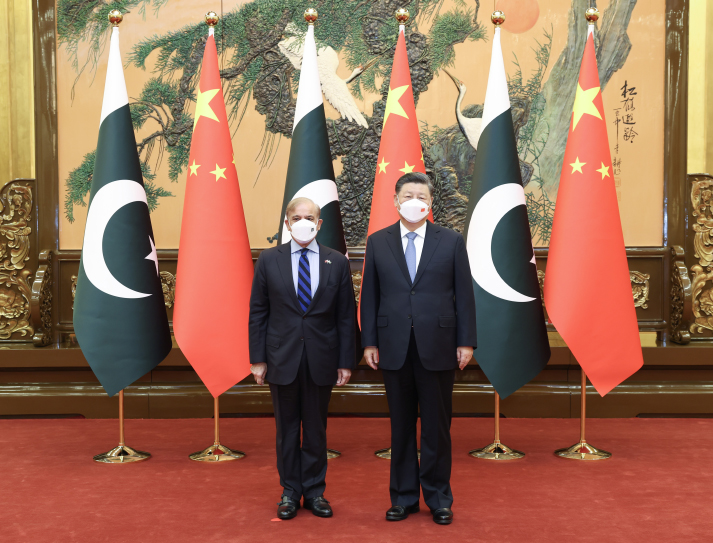
Cumulative cooperation
Despite COVID-19 affecting international mobility, China and Viet Nam have had frequent high-level exchanges. Their regular communication and interaction have boosted bilateral cooperation at different levels and in different areas, Jia said.
The two neighbors have strong trade ties that span many fields, such as industrial technology. China is Viet Nam’s largest trading partner and a key source of imports, including raw materials and machinery, for its crucial manufacturing sector. Annual bilateral trade hit $230.2 billion in 2021, up 19.7 percent year on year. In the first nine months of this year, bilateral trade reached $132.38 billion, according to Vietnamese customs data.
During his talks with Trong, Xi also reaffirmed that China regards the Association of Southeast Asian Nations (ASEAN) as a priority in its neighborhood diplomacy as well as a key region in high-quality Belt and Road cooperation and values Viet Nam’s position and role in regional bloc.
“We look forward to working with Viet Nam to accelerate the building of a peaceful, safe and secure, prosperous, beautiful and amicable home together, and to promote regional economic integration in East Asia,” Xi said.
Just before Sharif arrived in Beijing, the CPEC’s 11th Joint Cooperation Committee Meeting concluded with many consensuses reached on the next phase of development and construction, including the $10 billion Karachi-Peshawar Rail project.
According to Tanzanian Ambassador to China Mbelwa Kairuki, China is Tanzania’s largest source of investment and its largest trading partner. The country has benefited a lot since joining the Belt and Road partnership in 2018, with its trade with China gaining 20 percent.
The news of Scholz’s China visit received mixed reactions in Germany, but Martin Wansleben, Managing Director of the Association of German Chambers of Commerce and Industry, said Scholz making the trip was the right call, as Germany, Europe and the world by large depend on China in many ways as well as in solving emerging problems, including climate change and food security. “Without China, we can never really solve these problems,” he said to the Global Times.
China has been Germany’s biggest trading partner for the past six years, with trade volume exceeding 245 billion euros ($274 billion) in 2021. Cui said the business community remains a strong pillar pushing forward bilateral cooperation because of the great and stable benefits this cooperation generates.
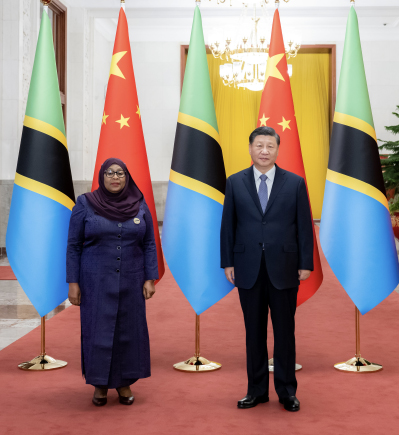
Connecting through experiences
In an article published by the Global Times on October 30, Sharif quoted Confucius who once uttered the following illustrious words in his tribute to the concepts of friends and friendship: “There are three types of good friends: one that is direct and honest; one that is trustworthy, dependable, and generous when you’re in need; and one that is knowledgeable and talented to guide you and show you what you can’t see.” For Sharif, the Sino-Pakistani friendship checks all three boxes.
China is a leading voice addressing the adverse impacts of climate change and has upgraded its disaster response mechanism. According to Sharif, his country looks forward to learning from China’s technological advances in the early warning system, building resilient infrastructure and upgrading disaster management.
Trong also said Viet Nam is willing to work with China to maintain high-level exchanges that enhance mutual understanding, strengthen mutual political trust and give play to the strategic role of inter-party relations.
–The Daily Mail-Beijing review news exchange item

